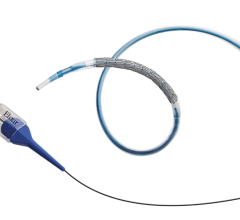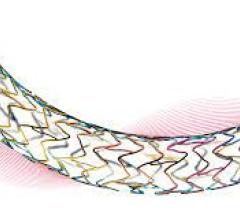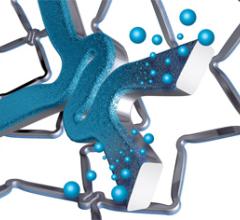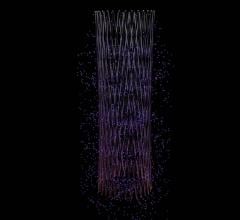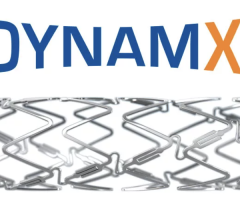January 10, 2008 - Patients who received OrbusNeich’s Genous Bio-engineered R Stent had significantly fewer major cardiac adverse events (MACE) than patients who received FDA-cleared drug-eluting stents in a study conducted at Federico II University of Naples in Naples, Italy.
The results of the study were presented recently at the XXVIII National Congress of the Italian Society of Invasive cardiology by Federico Piscione, M.D., the study’s principal investigator and a professor with the university's Division of cardiology, Department of Clinical Medicine and Cardiovascular Sciences. The Genous is coated with an antibody to capture a patient’s endothelial progenitor cells to accelerate the natural healing process.
At clinical follow-up of 10 months, the cumulative MACE rate for the Genous group (GRS) was 4 percent versus 22 percent for the combined TAXUS and CYPHER group (DES). For the MACE components, the cumulative rate of target vessel revascularization (TVR) was 1 percent for GRS versus 11.8 percent for DES, the cumulative rate of myocardial infarction (MI) was 1 percent for GRS versus 7.8 percent for DES, and the cumulative mortality rate was 2 percent for GRS versus 7.8 percent for DES. In addition, the cumulative rate for stent thrombosis was 2 percent for GRS versus 5.8 percent for DES.
"Our findings suggest that the deployment of Genous stents in a consecutive series of high-risk patients is safe and effective, with a significantly lower in-hospital incidence of MACE and a better long-term clinical outcome when compared to drug-eluting stents," said Piscione. "Genous attracts circulating endothelial progenitor cells to rapidly build a layer of healthy tissue and promote long-term natural healing."
The study involved 195 consecutive high-risk patients who underwent percutaneous coronary intervention (PCI) with either GRS or DES implantation at the university’s cath lab. After PCI, patients who received GRS were prescribed dual antiplatelet therapy for one month, and patients who received DES were prescribed the same therapy for nine months. Complete clinical follow-up was obtained for 100 percent of the patient population. High risk was defined as advanced age, high rate of conventional risk factors for CAD, multivessel disease, multivessel stenting and depressed left ventricular ejection fraction.
For more information: www.unina.it


 July 02, 2024
July 02, 2024 

